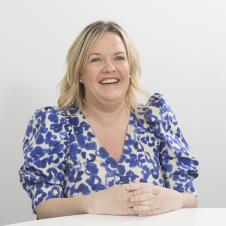Head of Private Client Tax comments on The Scottish Budget 2023-24
Deputy First Minister, John Swinney, delivered the Scottish Budget 2023-24 on Thursday 15 December 2022. Commenting on the Budget, Alexandra Docherty, Partner and Head of Private Client Tax, Johnston Carmichael, said:
“The task set for John Swinney (Deputy First Minister) to balance Scotland’s books today was never going to be an easy ask. Since the Scottish 2022/23 budget was presented last December the economic situation has deteriorated significantly. High inflation continues to erode living standards, together with eroding the value of the Scottish Government’s budget in 2022/23 and today John Swinney confirmed that despite earlier cuts and tax increases the books are still not balanced. And as there are no surplus funds from 2022/23 year to roll into 2023/24 year then things will get tougher.
“Today saw further divergence between Scotland and the rest of the UK when it comes to exercising its devolved tax powers. With income tax thresholds and rates for earned income and non-savings income devolved to the Scottish Government, today’s freezing of the starter, basic, intermediate and higher rate thresholds will create ‘fiscal drag’ and increase the tax burden on the Scottish population; this is often referred to as stealth tax."
“The reduction of the top rate threshold from £150,000 down to £125,140 fits with the Scottish Government’s aspiration for progressive tax policy change and the way was paved to make this a much easier change following the UK Government announcing the same threshold reduction last month. The Scottish Government looked to maximise further tax revenues by not only reducing the threshold at which you pay the additional rate of income tax but also increasing the rate from 46% to 47%. It is estimated by the Fraser of Allander Institute that this reduction in the top rate threshold down to just over £125,000 will bring a further 12,000 taxpayers into the top rate in Scotland. However, it will be interesting to see any behavioural responses amongst top earners as Scottish taxes continue to diverge.
“Also with increased flexibility in working from home, there are fewer barriers to individuals moving to others parts of the UK where the income tax burden is less. The higher cost of income tax in Scotland may also impact on Scotland’s ability to attract the best talent. With a declining working population there is a risk these tax increases could erode Scotland’s income tax base over the longer term.
“Given the financial constraints being faced by the Scottish government, it’s unsurprising they have looked to flex the devolved tax powers further.
“To better balance Scotland’s books increases were also announced to the higher rate of tax – moving it from 41% to 42% and the additional rate from 46% to 47%.
“This is painful for middle earners and the wealthiest in the Scottish population. Even before today’s announcements a middle earner in Scotland earning £50,270 would pay £1,545.80 now increasing from 6 April to £1,611.88 more than the rest of the UK. This is because Scotland took the decision a few years ago to not raise the higher rate threshold in line with increases applied in the rest of the UK. This means that higher rate tax (41% moving to 42%) kicks in at £43,663 in Scotland, compared to £50,271 elsewhere in the UK.
“Based on HMRC data released for the 2021 tax year, there are circa 2.5m taxpayers (57% of the adult population) north of the Border. Only about 375,000 taxpayers earn more than £43,663. However, this small group pays 60% of the income tax collected in Scotland, and today’s announcements will increase the tax burden on these individuals.”
Further Details
Our specialists have analysed the key tax announcements in further detail in our Scottish Budget 2023/24 overview.
If you would like to discuss the Budget further, please don't hesitate to get in touch with myself or your usual Johnston Carmichael adviser.


